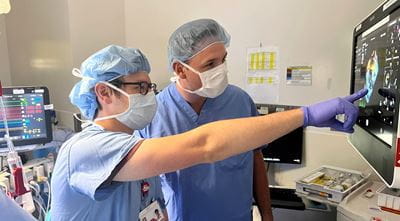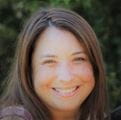
The Adult Cardiothoracic Anesthesia Fellowship program at Indiana University School of Medicine is an ACGME-accredited post-residency program offering trainees a robust clinical and academic experience unmatched in the state. With clinical exposure to a medically complex patient population, innovative surgical techniques and the latest technology in minimally invasive and percutaneous interventions, fellows can expect to become expert consultants in the subspecialty. With over 500 cardiac surgical cases per year, IU School of Medicine provides a rich learning environment for the budding cardiothoracic anesthesiologist.
In addition to more routine cardiac cases, fellows will learn the nuances of management of advanced procedures including robotic-assisted mitral valve surgery, aortic reconstructive surgery and adult congenital cardiac surgery, to name a few. Fellows can also expect to become familiar with heart and lung transplantation, temporary and durable ventricular assist devices and extracorporeal membrane oxygen. In the cath lab, fellows will provide care for patients undergoing transcatheter aortic valve implantation, transcatheter mitral valve repair and left atrial appendage occlusion, among others.
The educational curriculum is designed to prepare fellows for the ABA Adult Cardiac Anesthesiology Exam and the NBE Advanced Perioperative Transesophageal Echocardiography Exam. With the mix of protected lecture time, multi-disciplinary conferences, one-on-one intraoperative teaching and time for independent study, fellows can feel confident that their training has set them on a path to board certification.










